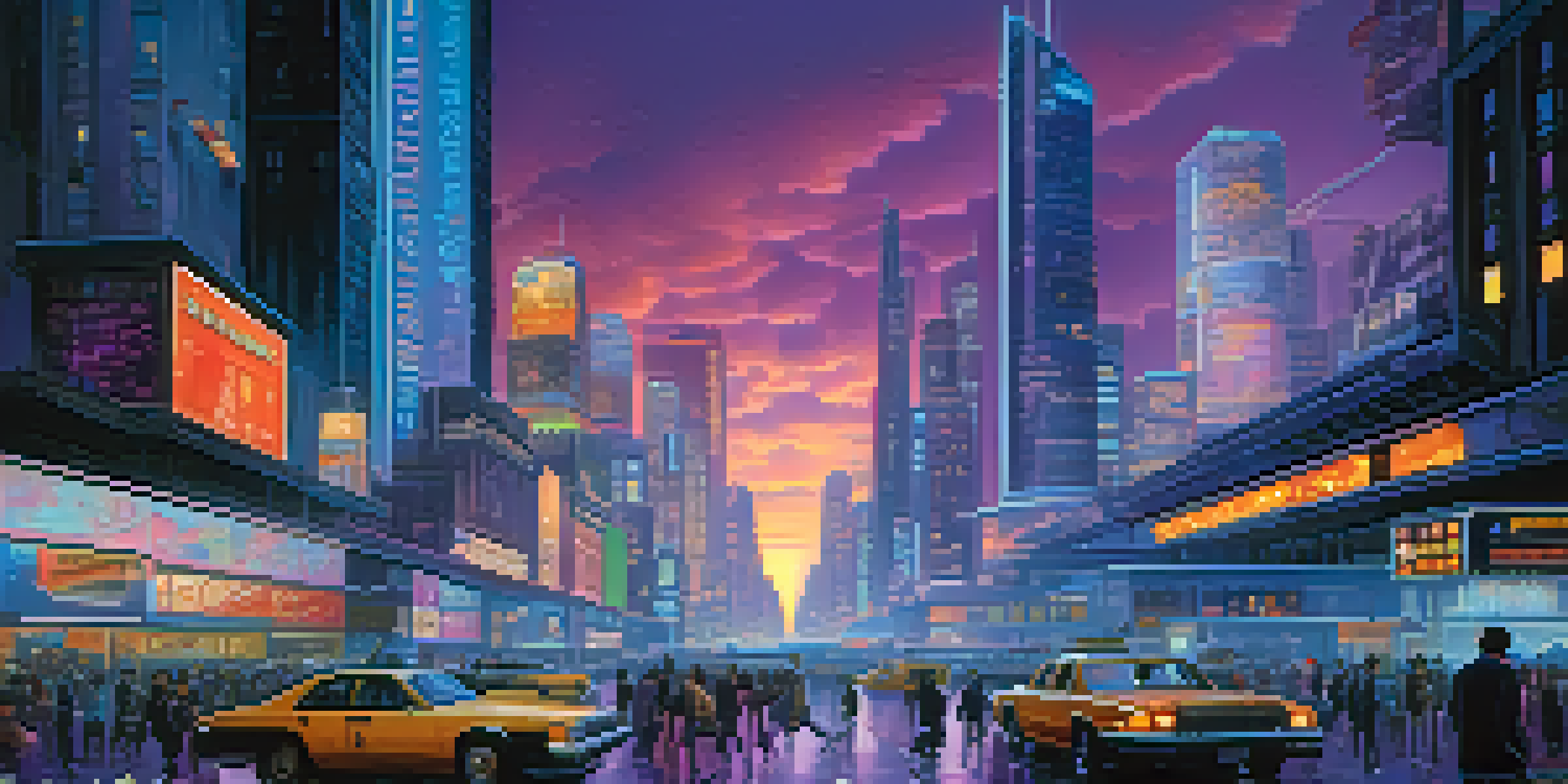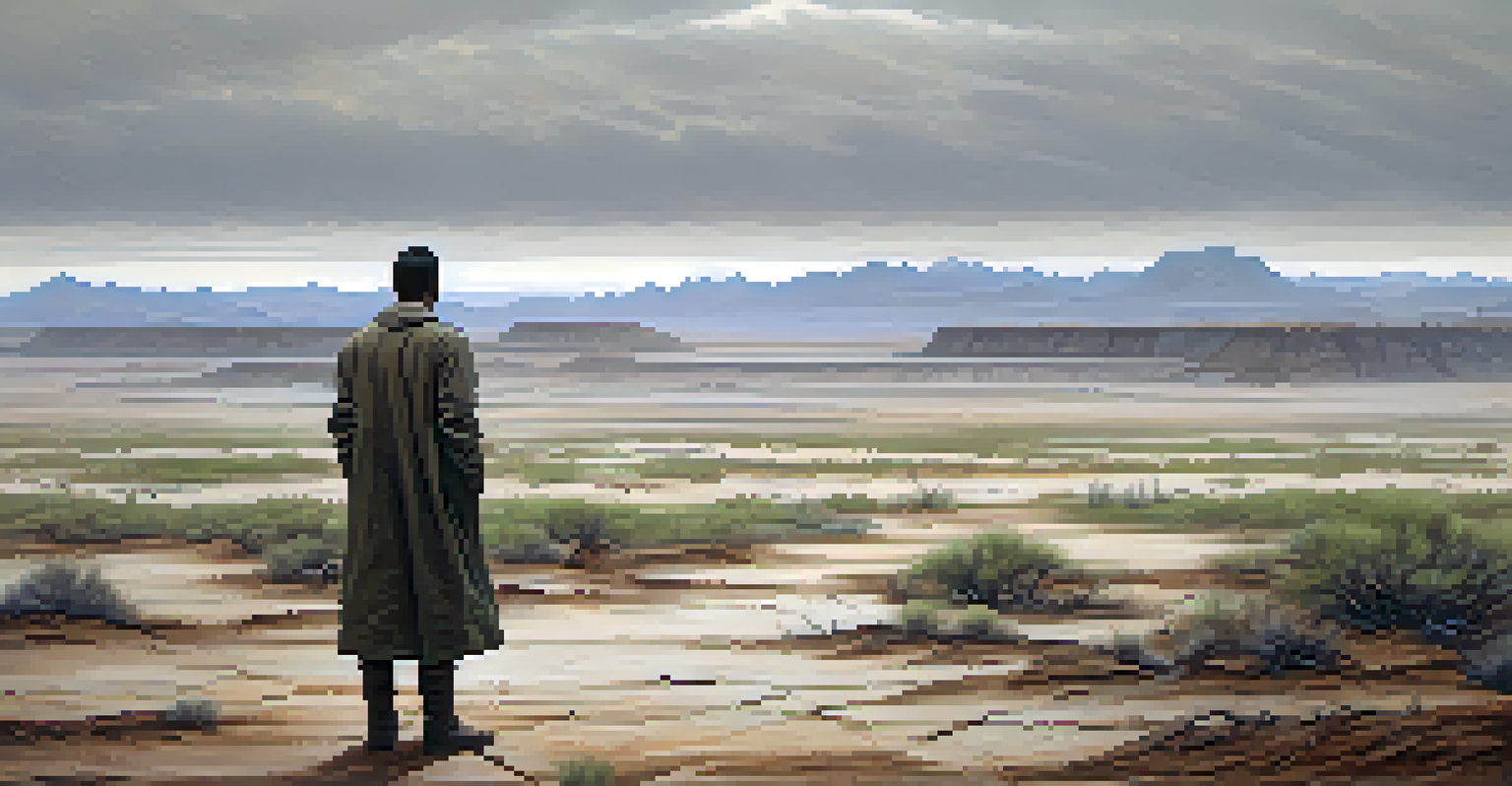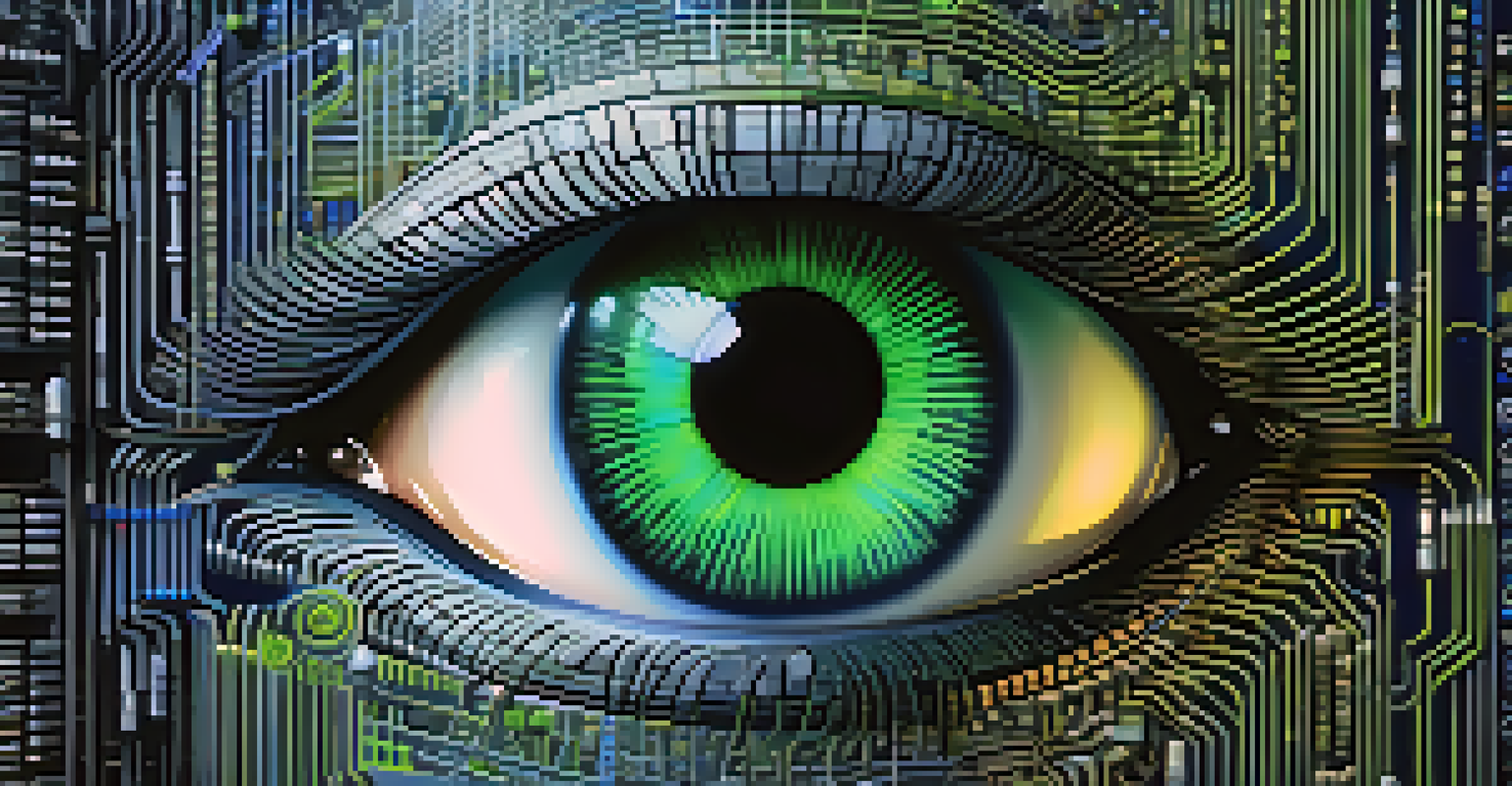Dystopian Futures: Hollywood's Reflection of Societal Fears

The Rise of Dystopian Themes in Cinema
Dystopian narratives have surged in Hollywood, capturing audiences' attention with their dark and thought-provoking themes. Films like 'Blade Runner' and 'The Hunger Games' present bleak futures that resonate deeply with viewers. This rise in popularity suggests a societal need to confront and explore our fears, whether they stem from technology, government control, or environmental disaster.
In a world where the boundaries between reality and fiction are increasingly blurred, dystopian narratives compel us to confront the uncomfortable truths of our existence.
As we delve into these cinematic worlds, we often see reflections of our current realities. For instance, the portrayal of surveillance in 'Enemy of the State' echoes today’s concerns about privacy in the digital age. Such parallels invite audiences to question the trajectory of our society and the potential consequences of our choices.
This trend is not just entertainment; it's a cultural commentary that invites dialogue. By examining these films, we can better understand the anxieties that shape our lives, making the genre a powerful tool for social reflection.
Technological Fears: The Double-Edged Sword
Technology is often depicted as a harbinger of doom in dystopian films. Movies like 'The Matrix' and 'Ex Machina' highlight the potential dangers of artificial intelligence and virtual realities, making us question the very tools we rely on. This fear stems from a deep-seated anxiety about losing control over our creations and the implications of advanced technology on our humanity.

These narratives serve as cautionary tales, urging us to consider ethical boundaries as we innovate. The chilling reality is that as technology evolves, so do the risks associated with it. 'Black Mirror,' for instance, showcases various scenarios where technology exacerbates societal issues, prompting viewers to reflect on their own lives and choices.
Dystopia Reflects Our Fears
Dystopian films serve as a mirror to societal anxieties, addressing issues like technology, government control, and environmental collapse.
Through these portrayals, filmmakers tap into our collective concerns about an uncertain future. By exploring these themes, they encourage us to engage in conversations about the direction of technological advancement and its impact on society.
Government Control and Authoritarianism
Dystopian films often explore themes of government oppression, tapping into fears about losing personal freedoms. Classics like '1984' and 'V for Vendetta' depict societies where totalitarian regimes manipulate and control the populace. These narratives resonate strongly in times of political unrest, highlighting the fragility of democracy and the importance of vigilance.
Dystopian literature and cinema serve as a mirror to society, reflecting our fears and aspirations while urging us to engage with the world around us.
The portrayal of oppressive governments in cinema can act as a wake-up call for audiences. For example, 'The Handmaid's Tale' confronts viewers with a chilling vision of a society stripped of rights, prompting reflection on current events and potential future scenarios. Such films remind us that history can repeat itself if we ignore the warning signs.
Engaging with these stories allows viewers to process their anxieties about authority and governance. It encourages a critical examination of political systems, fostering a culture of awareness and resistance against oppressive forces.
Environmental Catastrophes: A Looming Reality
The threat of environmental collapse is a recurring theme in dystopian cinema, reflecting growing concerns about climate change. Films like 'Mad Max: Fury Road' and 'Snowpiercer' showcase worlds ravaged by disastrous ecological decisions, prompting urgent discussions about sustainability. These narratives serve as stark reminders of the consequences of neglecting our planet.
As characters navigate these harsh realities, audiences are compelled to confront their own roles in environmental degradation. The stark imagery of desolate landscapes and scarce resources emphasizes the urgency of addressing climate issues. Through these stories, filmmakers invoke feelings of responsibility and action among viewers.
Technology: A Cautionary Tale
Films like 'The Matrix' and 'Black Mirror' highlight the dangers of technological advancement, urging viewers to consider ethical implications.
By engaging with these dystopian visions, we can better appreciate the importance of environmental stewardship. These films serve not just as entertainment but as crucial conversations about our future and the choices we make today.
Societal Division and Class Struggle
Dystopian narratives often highlight the widening gap between social classes, showcasing societies where the rich thrive while the poor suffer. Films such as 'Elysium' and 'Parasite' delve into the consequences of economic disparity, illustrating how societal division can lead to unrest and rebellion. These portrayals resonate with audiences grappling with similar issues in their own lives.
Through powerful storytelling, filmmakers invite viewers to empathize with the struggles of marginalized communities. The stark contrasts between opulence and poverty serve as a reminder of the systemic issues that persist in our world. Such narratives encourage critical reflection on the societal structures that uphold inequality.
By confronting these themes, audiences are prompted to consider their own roles in fostering a more equitable society. Dystopian cinema becomes a medium for exploring the complexities of class struggle and the potential for social change.
The Psychological Impact of Dystopian Narratives
Watching dystopian films can evoke a range of emotions, from fear to hope, reflecting our deepest anxieties. These narratives challenge us to confront uncomfortable truths about our world, often leaving a lasting impact on our psyche. The emotional weight of films like 'Children of Men' can encourage audiences to consider the fragility of hope in dire circumstances.
The psychological effects of engaging with dystopian themes can also lead to increased awareness and activism. When viewers see the consequences of societal neglect or environmental destruction, they may feel compelled to take action in their own lives. This connection between fiction and reality highlights the power of storytelling as a catalyst for change.
Class Struggle in Dystopian Narratives
Dystopian cinema often portrays the stark divide between social classes, prompting reflection on economic disparity and its societal consequences.
Ultimately, these films serve as mirrors, reflecting not just our fears but also our resilience. By exploring the emotional landscape of dystopian cinema, we can better understand our reactions and motivations in the face of adversity.
The Future of Dystopian Storytelling
As societal fears continue to evolve, so will the themes and narratives of dystopian films. Filmmakers are likely to explore new anxieties surrounding technology, governance, and environmental challenges in innovative ways. This ongoing evolution reflects the dynamic relationship between cinema and the world, ensuring that these stories remain relevant and impactful.
Moreover, the rise of streaming platforms has democratized access to diverse voices and perspectives, enriching the dystopian genre. Emerging filmmakers from various backgrounds can share unique visions of the future, offering fresh insights into our collective fears. This diversity can lead to more nuanced portrayals of dystopian themes, reflecting a broader range of societal experiences.

As we look ahead, the power of dystopian storytelling will continue to inspire dialogue and reflection. These films will serve as important cultural artifacts, helping us navigate the complexities of our world while encouraging us to envision a better future.